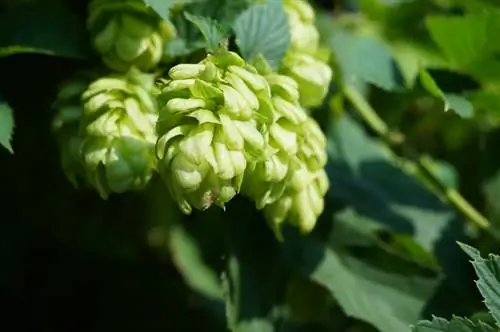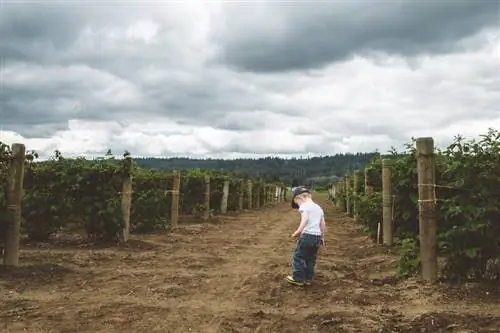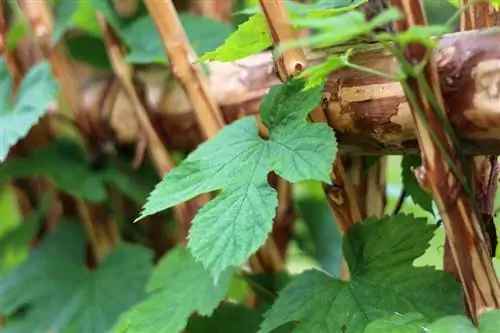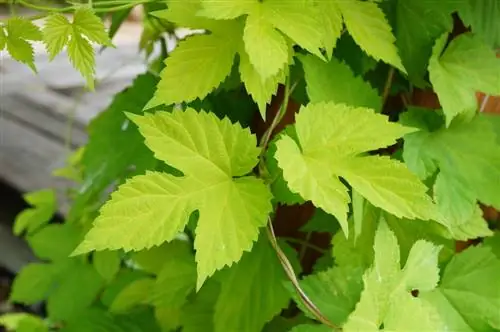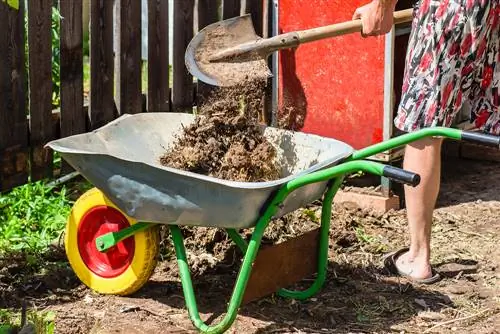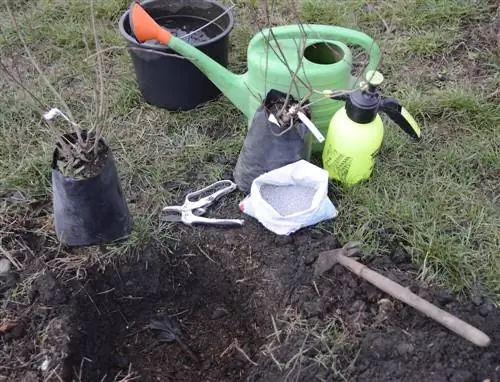- Author admin leonars@hobbygardeners.com.
- Public 2023-12-16 16:46.
- Last modified 2025-01-23 11:20.
Hops grow very quickly. In good months, the plant grows one meter in height in a week. To support rapid growth, the climbing plant needs sufficient nutrients. Regular fertilization ensures that the hops are supplied with all the important substances.
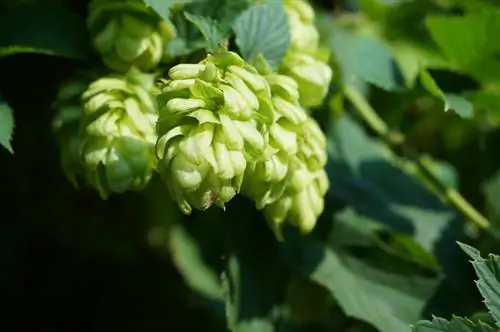
How should you properly fertilize hops?
Hops require regular fertilization with nutrient-rich substances such as compost, animal manure, nettle manure or commercial vegetable fertilizer. Start in spring and fertilize monthly to meet the plant's high nitrogen needs. Hop vines should not be cut back completely in autumn.
What nutrients do hops need?
Hops form a lot of green matter. For this it requires large amounts of nitrogen. Make sure the soil is sufficiently supplied with nitrogen.
Before planting hops, amend the soil with animal manure and/or compost. Horn shavings are also suitable. If you can make plant manure yourself, you should add it to the planting holes a few days before planting.
The right time to fertilize
The hops receive their first fertilization in spring. Spread compost or animal manure around the plant and work the fertilizer lightly into the soil with a rake.
As the season progresses, the hops always need replenishment. Commercially available vegetable fertilizers (€19.00 on Amazon) with a high nitrogen content are well suited for regular fertilization
These are administered at monthly intervals. As an exception, you may slightly exceed the manufacturer's recommended quantities because hops need more nutrients than normal vegetable plants.
Suitable fertilizers for hops
- Compost
- animal manure
- Stinging nettle manure
- Vegetable fertilizer
Plant manure such as nettle manure contains a lot of nitrogen and is therefore ideal for hops. However, make sure that you only use diluted manure and that it is not poured directly onto the roots, stems or leaves.
Don't cut back hops completely in autumn
To ensure nutrient supply, you should not cut hops back to the ground in autumn. The hops absorb important nutrients through the above-ground parts of the plant and pass them on to the roots.
It is ideal if you leave hop vines about 50 to 70 centimeters long until next spring.
Tip
Hops are not only very popular as a useful plant. Because of its rapid growth, hops are ideal as a privacy screen in the garden or on the balcony. The prerequisite is that the climbing plant has a climbing aid available.

